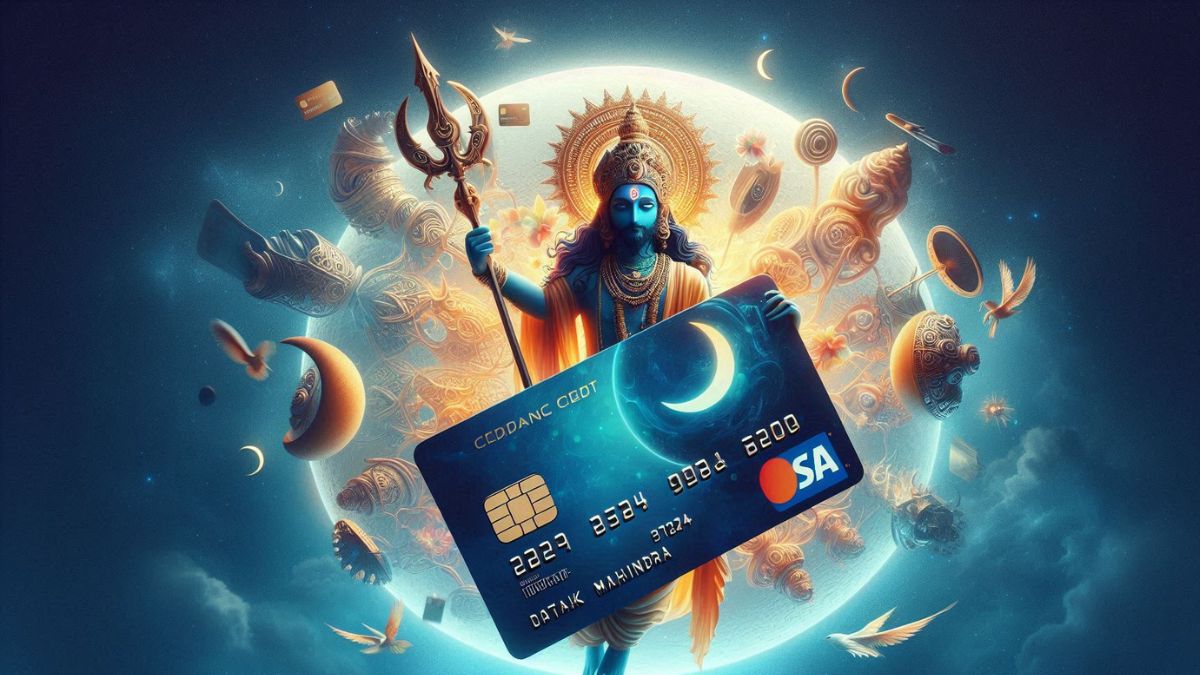Credit cards for bad credit : In the current financial climate, it is almost obligatory to possess a credit card. When purchasing goods online or making flight reservations, credit cards provide unparalleled convenience and security that cash cannot offer. However, getting approval for one may prove difficult for individuals with bad credit. This could happen due missed payments, excessive use of credit or even lack of history in using some form of credit.
On the brighter side though, there are issuer-specific cards meant strictly for people with poor records hence enabling them to restore their ratings as they continue enjoying their advantages.
This guide will take you through some of the best credit cards available in 2024 for those with poor credit. We\’ll explore their features, fees, and benefits, helping you make an informed decision.
Credit cards for bad credit
1. SBI Advantage Plus Credit Card
The SBI Advantage Plus Credit Card is a secured credit card offered against a fixed deposit. This card is an excellent option for individuals looking to rebuild their credit while enjoying the benefits of a credit card.
Key Features:
- Global Acceptance: The SBI Advantage Plus Credit Card is accepted worldwide, making it a reliable option for international travel and online purchases.
- Credit Limit: You can get a credit limit of up to 85% of your total fixed deposit amount, providing you with significant purchasing power.
- Cash Withdrawal: You can withdraw cash from ATMs globally, offering liquidity when you need it.
- Add-On Cards: You can apply for add-on cards for your spouse, siblings, children, or parents, making it a family-friendly option.
- Flexipay: Convert your big spends into easy EMIs with the Flexipay feature, allowing for better financial management
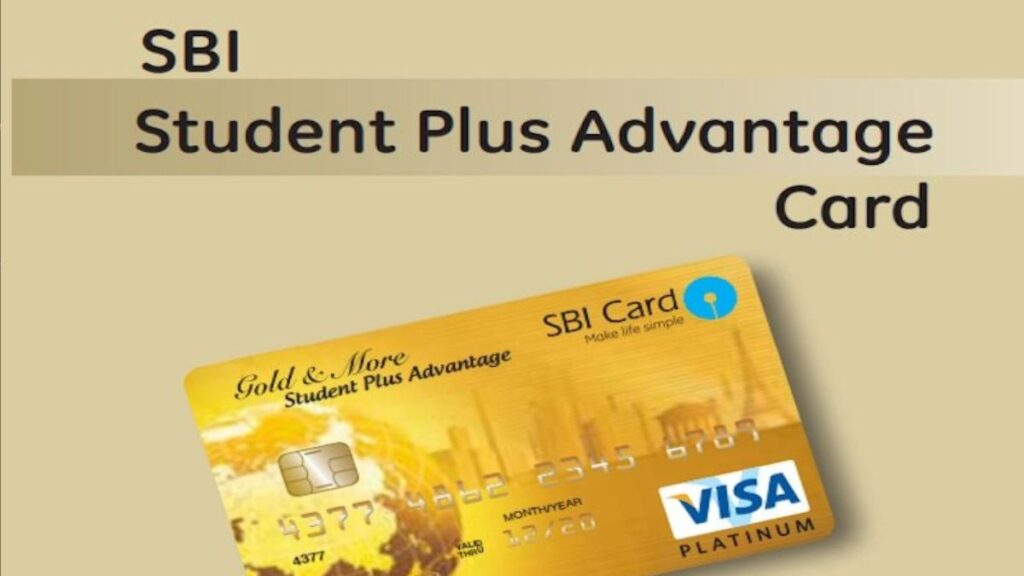
Fees and Charges:
- Annual Fee: ₹500
- Renewal Fee: ₹500 per annum
- Add-On Charges: Nil
- Interest Charges: 2.25% per month or 27% per annum
- Late Payment Charges: Up to ₹750, depending on the outstanding amount
A fixed deposit and a desire to repair credit are the main reasons why the SBI Advantage Plus Credit Card is recommended.
2. SBI Unnati Credit Card
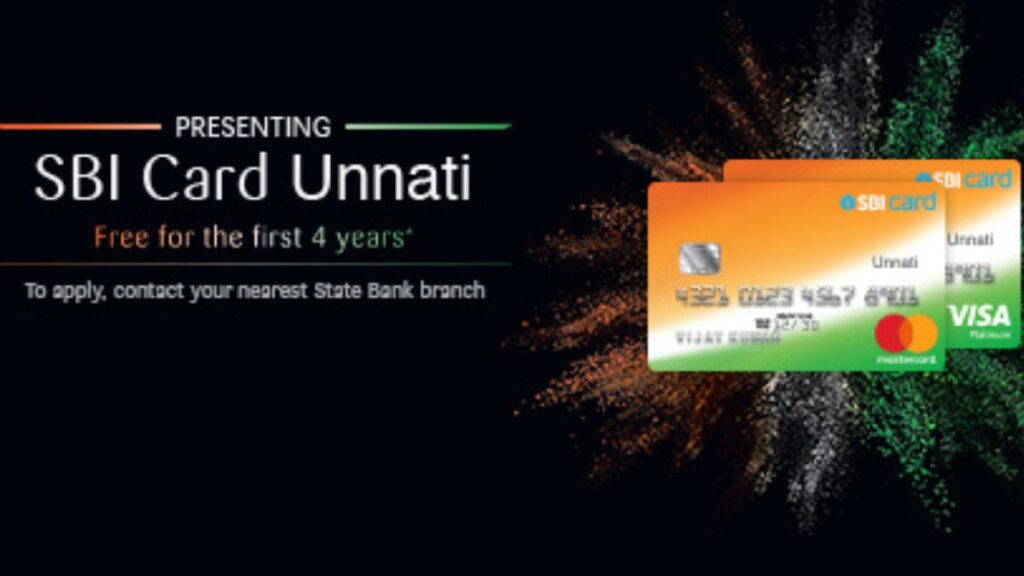
Key Features:
- No Annual Fee: One of the most attractive features of the SBI Unnati Credit Card is the absence of an annual fee for the first four years, making it a cost-effective choice.
- Contactless Transactions: Enjoy the convenience of contactless payments, making your transactions quicker and more secure.
- Cash Withdrawal: Withdraw cash from ATMs across the globe, ensuring you have access to funds whenever needed.
- Add-On Cards: Similar to the SBI Advantage Plus, you can apply for add-on cards for your family members.
- Flexipay: Convert your credit card spends into EMIs, easing the burden of large purchases.
Fees and Charges:
- Annual Fee: Nil for the first four years
- Renewal Fee: ₹499 from the 5th year onwards
- Add-On Fee: Nil
- Interest Charges: 2.50% per month or 30% per annum
- Minimum Amount Due: 5% of the total outstanding amount
The SBI Unnati Credit Card happens to be the best pick for anyone looking for an uncomplicated credit card that has low costs particularly when they have a huge amount as fixed deposit.
3. Axis Bank Insta Easy Credit Card
Axis Bank Insta Easy is a credit card that can be applied for by people with poor or no credit histories at all. Since it falls under secured credit cards category, it can be obtained against a fixed deposit.
Key Features:
- Credit Limit: You can get a credit limit of up to 80% of your fixed deposit, which provides substantial purchasing power.
- Fuel Surcharge Waiver: Save on fuel purchases with a 1% surcharge waiver on all fuel transactions.
- Cash Withdrawal: You can withdraw up to 100% of your credit limit in cash, offering flexibility in emergencies.
- No Joining or Annual Fee: This card does not charge any joining or annual fees, making it a cost-effective option.
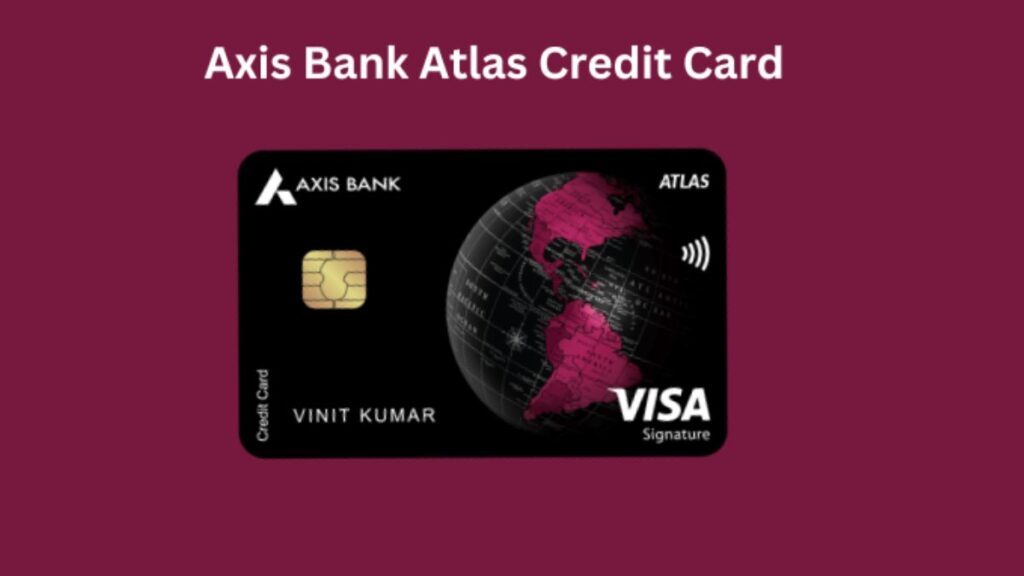
Fees and Charges:
- Joining Fee: Nil
- Annual Fee: Nil
- Add-On Charges: Nil
- Interest Rate: 2.50% per month or 34.49% per annum
- Late Payment Fee: Up to ₹700
Individuals aiming to raise their credit scores can choose the Axis Bank Insta Easy Credit Card as a wonderful alternative which entails low costs and an easy application process.
4. Kotak Mahindra Aqua Gold Credit Card
Key Features:
- Interest-Free Cash: Enjoy interest-free cash withdrawals for up to 48 days, providing you with much-needed liquidity without the burden of immediate interest charges.
- Fuel Surcharge Waiver: Get a fuel surcharge waiver on transactions above ₹500, up to a maximum of ₹3,500, helping you save on everyday expenses.
- Railway Surcharge Waiver: Save on railway bookings made through the IRCTC website with a surcharge waiver of up to ₹500.
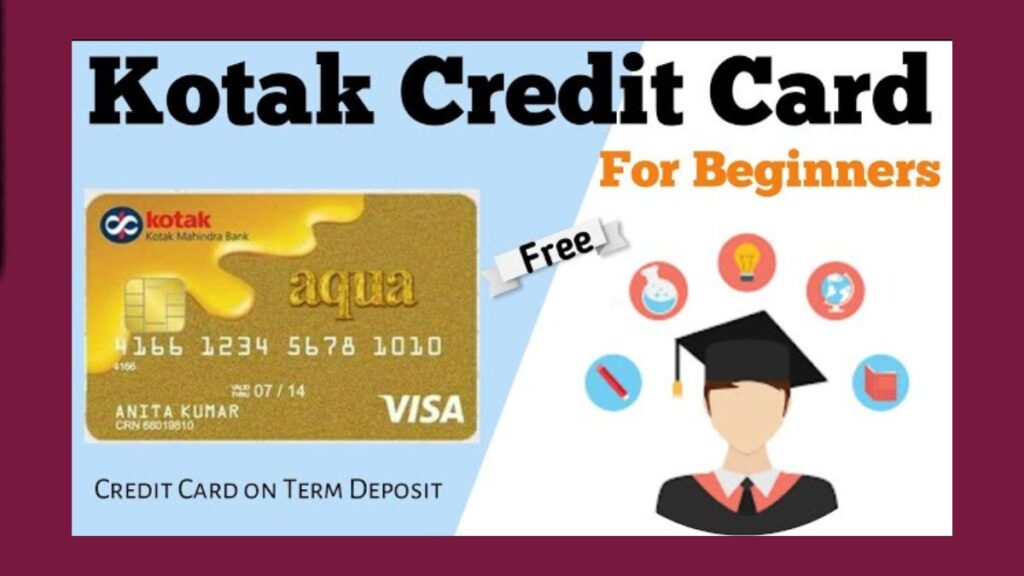
Fees and Charges:
- Joining Fee: Nil
- Annual Fee: Nil
- Add-On Charges: Nil
- Interest Rate: 2.99% per month or 35.88% per annum
- Late Payment Fee: Up to ₹700
- Over Limit Charge: ₹500
For individuals who travel by train frequently or are in need of an economical method to manage their cash flow, the Kotak Mahindra Aqua Gold Credit Card is an exceptional pick.
5. HDFC Money Back Credit Card
The HDFC Money Back Credit Card is a popular choice for individuals looking to rebuild their credit while earning rewards on their spending.
Key Features:
- Reward Points: Earn 2 reward points for every ₹150 spent on the card, allowing you to accumulate points that can be redeemed for cashback or other rewards.
- SmartEMI: Convert your large purchases into EMIs with the SmartEMI feature, helping you manage your finances better.
- Lost Card Liability: If your card is lost, you are not liable for any unauthorized transactions made after reporting the loss
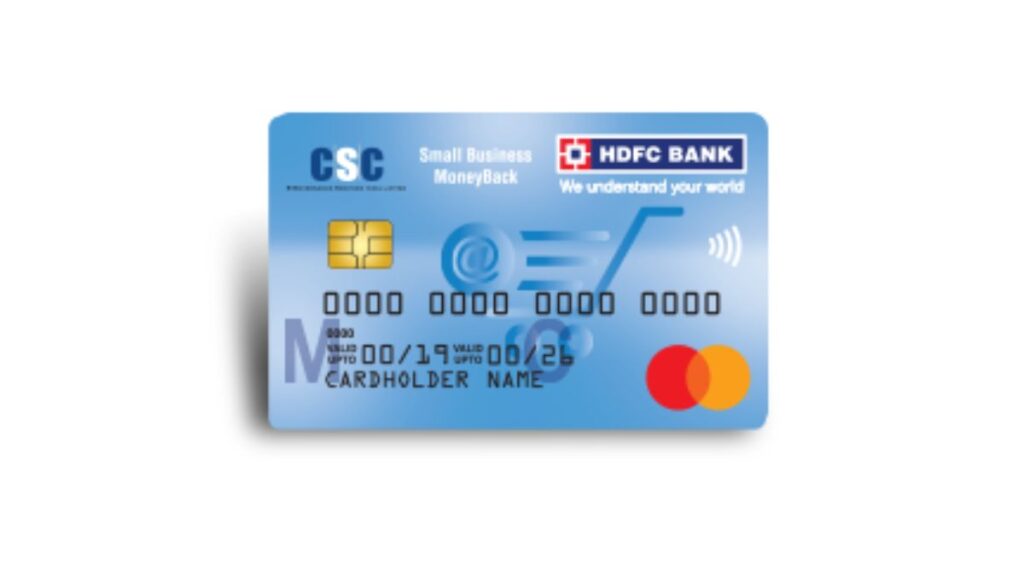
Fees and Charges:
- Joining Fee: ₹500
- Annual Fee: ₹500
- Add-On Charges: Nil
- Minimum Amount Due: 5% of the total outstanding amount
- Late Payment Fee: Up to ₹750
- Over Limit Charge: ₹500 minimum
HDFC Money Back credit card is one of the best cards for those who want to get rewarded while repairing their credit history at lower rates!
Final thought
Acquiring a common credit card may be challenging due to poor credit; nevertheless, several alternatives are available. Specifically meant for customers with bad credit, the above-discussed cards allow you to improve your credit score while enjoying the benefit of having a transaction-based card.
When selecting a credit card, think about the costs, interest rates and benefits it offers so that you find the one that is most appropriate for you. Keep in mind that if someone uses their Credit Card responsibly like paying on time and staying within their limit then they would be able to raise their Credit Score gradually leading to more chances of borrowing money later on.
FAQs on Best Credit Cards for Poor Credit
1. For how many years does CIBIL keep a record of its defaulters?
CIBIL maintains records of defaulters for 5 to 7 years. After this period, the records no longer adversely affect your credit score, allowing you to recover from past credit issues.
2. How important is a CIBIL score to get a credit card
While a CIBIL score is crucial, it is not the only criterion for obtaining a credit card. Banks also consider factors such as age, banking relationships, income level, and employment type when evaluating applications
3. Are there any loans I can apply for if I have a low CIBIL score?
While most loans are difficult to obtain with a low CIBIL score, some lenders may offer loans at higher interest rates to individuals with poor credit.
4. Is CIBIL TransUnion the only credit bureau in India?
No, there are other credit bureaus in India, including Experian India and Equifax India, that also provide credit scores and reports.
5. What is the ideal credit score to get a credit card?
The closer your credit score is to 900, the better your chances of getting approved for a credit card. A score above 750 is generally considered good.
6. What factors are included in the calculation of a credit score?
Factors such as account information (credit cards and loans), public records (tax liens and bankruptcies), and hard inquiries by lenders all contribute to the calculation of your credit score.
7. What is the significance of the credit score range?
Credit score ranges vary by assessor but generally represent the same level of creditworthiness. A higher score indicates better credit health.
8. What happens if I exceed my credit limit?
If you exceed your credit limit, your card issuer may charge an over-limit fee, and your credit score could be negatively impacted due to the high credit utilization ratio. Additionally, your card issuer may decline any further transactions until you pay down your balance.
9. What is credit utilization, and how does it affect my credit score?
Credit utilization is the ratio of your credit card balance to your credit limit. It is one of the key factors in determining your credit score. A low credit utilization rate (typically below 30%) is favorable and can positively impact your credit score, while a high utilization rate can negatively affect it
Type / to choose a block
Braj Verma is a resident of Rajgarh in Madhya Pradesh and is a content writer and freelancer by profession. He has a degree in Political Science from Barkatullah University, Bhopal. He has expertise in subjects like credit cards, banking, loan, insurance, political analysis and digital marketing.

